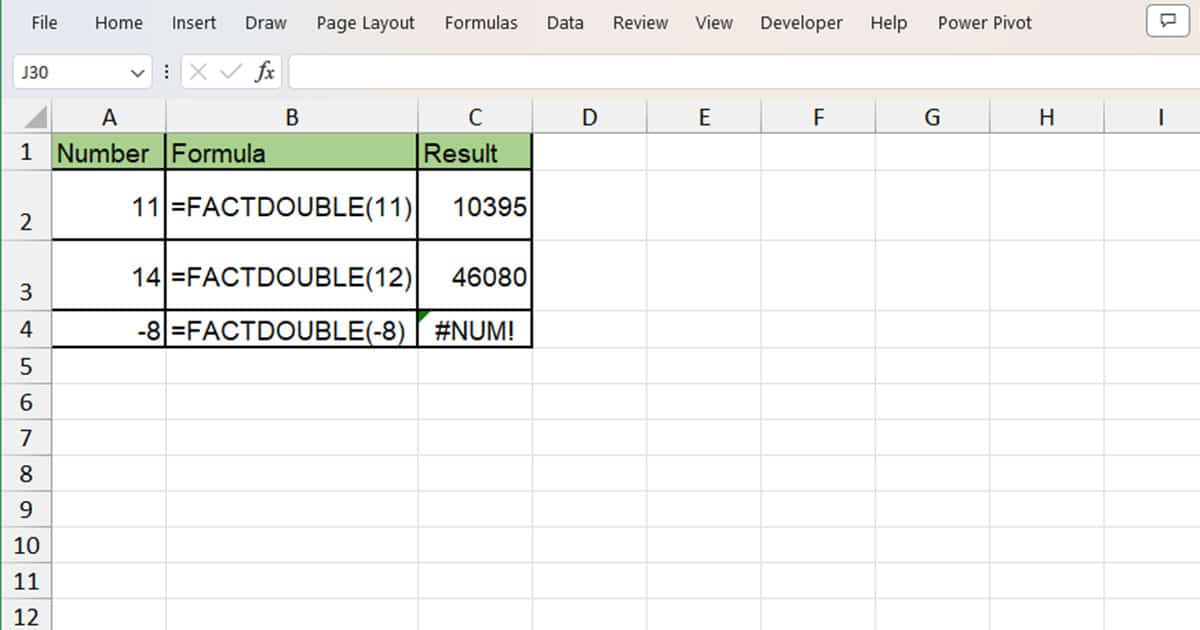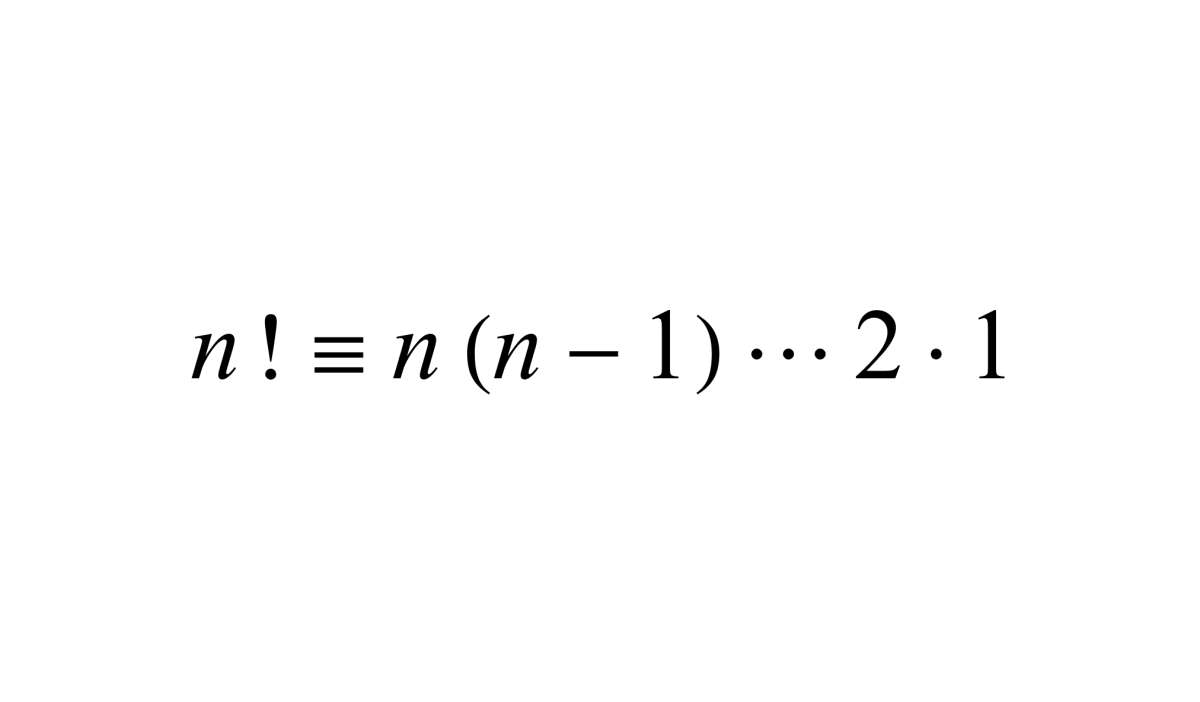
How to do Factorial in Excel
In general, use a factorial to count the number of ways in which a group of distinct items can be arranged (also called permutations). To calculate the factorial of a number, use the FACT function. This article describes the formula syntax and usage of the FACT function in Microsoft Excel. Description. Returns the factorial of a number.

How To Do Factorial in Excel Earn & Excel
Steps: First, use the following formula in cell C5. =FACT (B5) Here, cell C5 represents the first cell of the Number column. Then the FACT function will return the factorial of 100 in cell C5. After that, press ENTER. As a result, you will have the following output on your worksheet.

Excel 2010 Básico Ejercicio 7 Factorial de n YouTube
The factorial function in Excel is denoted as =FACT (number), where "number" is the input for which the factorial needs to be calculated. This function returns the factorial of a number, which is the product of all positive integers less than or equal to the specified number. B. Provide examples of how to use the factorial function in Excel

Factorials, Permutations and Combinations in Excel YouTube
A Factorial is a function in maths that takes a number, and then multiplies it by every whole number below it, until it reaches zero. In mathematical equations it it represented by an exclamation mark following the number - for example 8! Let's look at a few basic examples of this: 4! would mean take 4, and times that by 3, which gives us 12.

How To... Calculate the Factorial of a Number in Excel 2010 YouTube
What is a factorial? A factorial calculates the 'product' of all numbers less than or equal to a value. For example, the factorial of 5 would be: 5x4x3x2x1=120 In mathematical notation, factorials are usually indicated with an exclamation mark. 5! would indicate the factorial of 5.

How to Calculate Factorial Using Excel VBA (4 Effective Methods)
https://excel.tv/factorials-in-excel-how-to-calculate/Excel MVP Oz du Soleil shows you to calculate factorials in Excel. Oz uses the excel function to comput.

Excel obtener el factorial de un numero YouTube
Step 1: Open Microsoft Excel and select a cell where you want to display the result of the factorial calculation. Step 2: Type =FACT into the formula bar followed by the number for which you want to calculate the factorial. For example, =FACT (5) will calculate the factorial of 5.

How to Do Factorials in Excel (6 Easy Methods) ExcelDemy
PURPOSE OF FACTORIAL IN EXCEL. A factorial is multiplication of the number to its predecessor up to 1. A factorial represents the permutation of the n different items. Permutation means the different arrangements by which n different objects can be arranged. Factorial is used in various permutations and combinations formulas.

Excel Factorial YouTube
Factorial The '!' actually represents a factorial. So, what is meant by '3!'? Just use the built-in Excel function =FACT (3) and you will see which number it represents. Hence, for our example, we will input into Excel the formula =FACT (6)/ (FACT (6-4)*FACT (4)) and that's all. The answer turns out to be 15.

Find Factorial Using the FACT Function in Excel for Mac TurboFuture
Factorial determines the number of orders or combinations that can be arranged for a given set of items. It is mathematically denoted by the exclamation mark (!). In other words, the factorial of a number is the multiplication of each whole number from the chosen number to 1.

Factorial de un número y función Gamma en Excel YouTube
Key Takeaways Factorial is the product of all positive integers from 1 to a given number, denoted by the exclamation mark (!). Understanding factorial in Excel is essential for tasks such as permutation, combination, and probability calculations. Factorial in Excel can be utilized in various engineering, scientific, and financial analyses.

Excel Factorial, Permutation, and Combination YouTube
=FACT (number) The FACT function only takes one argument, which is the number for which you want to get the factorial value. Below is the formula that will give you the factorial of 5. =FACT (5) The argument in the FACT function needs to be an integer.

Excel to obtain the factorial of a number YouTube
Excel has a built-in function called FACT that can calculate factorials. Follow these steps to use it: Step 1: Open a new or existing Excel worksheet. Step 2: Select a cell where you want to display the result of your factorial calculation. Step 3: Type the following formula in the cell: =FACT (number)

3.6 DISEÑO FACTORIAL DE DOS FACTORES EN EXCEL PARTE1 YouTube
The factorial of a number can be easily calculated in Excel using the FACT function. = FACT (number) The FACT function takes a positive integer value as input and returns the factorial of that number. Here, "number" refers to the value for which you want to calculate the factorial. = FACT (B3)

How to Calculate Factorial for any number in MS Excel 2016 fabric flower tutorial
The Excel FACT function returns the factorial of a given number. In mathematics, the factorial of a non-negative integer n is the product of all positive integers less than or equal to n, represented with the syntax n! FACT takes just one argument, number, which should be a positive integer.

Excel to obtain the factorial of a number YouTube
The factorial of an integer number is the product of all integers up to and including that number. The factorial of a number n is usually represented with an exclamation character n! after the number. Here are a few examples of factorial calculations. 5 factorial is represented as 5! and this is just 5 * 4 * 3 * 2 * 1 = 120.